Home>Garden Essentials>How To Salt And Roast Sunflower Seeds
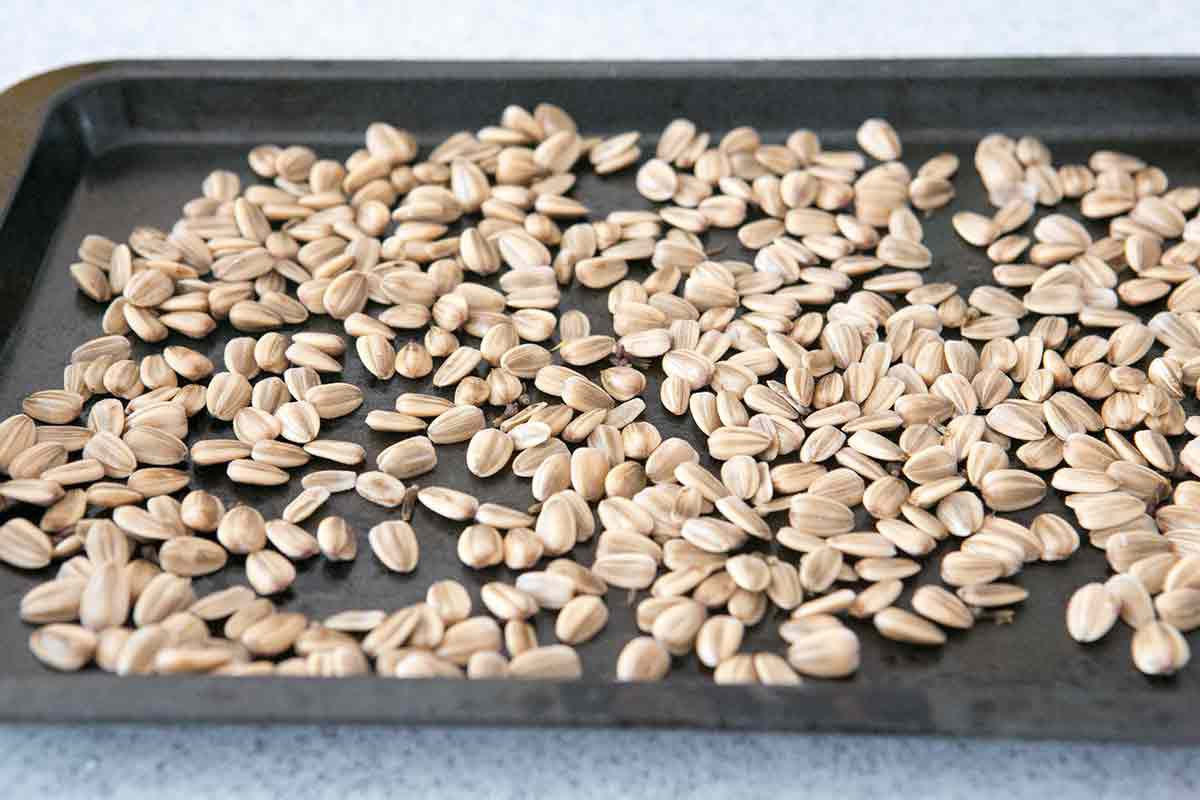

Garden Essentials
How To Salt And Roast Sunflower Seeds
Modified: August 17, 2024
Learn how to salt and roast sunflower seeds from your garden with these simple steps. Enjoy a tasty and healthy snack straight from nature!
(Many of the links in this article redirect to a specific reviewed product. Your purchase of these products through affiliate links helps to generate commission for Storables.com, at no extra cost. Learn more)
Introduction
Welcome to our guide on how to salt and roast sunflower seeds! Sunflower seeds are not only a tasty snack but also a great source of nutrients. Whether you enjoy them on their own, use them as a topping for salads and yogurt bowls, or incorporate them into your favorite recipes, knowing how to properly salt and roast sunflower seeds will elevate their flavor and make them even more enjoyable.
In this article, we will explore the benefits of roasted sunflower seeds, learn how to prepare and salt the seeds, discover the best techniques for roasting them to perfection, and even dive into a few flavor variations to spice things up. So, let’s get started on this crunchy and delicious journey!
Key Takeaways:
- Elevate your snacking game by learning how to salt and roast sunflower seeds for a crunchy, flavorful, and nutritious treat. Enjoy the health benefits and explore exciting flavor variations!
- Properly store your roasted sunflower seeds in an airtight container in a cool, dark place to maintain their crunchiness and flavor. Enjoy them as a snack or in your favorite recipes for a delicious and versatile addition to your meals!
Read more: How Do I Roast Sunflower Seeds
Benefits of Roasted Sunflower Seeds
Roasted sunflower seeds offer a myriad of health benefits, making them an excellent addition to a balanced diet. Here are some of the key advantages of incorporating roasted sunflower seeds into your snacking routine:
- Nutrient-rich: Sunflower seeds are packed with essential nutrients such as vitamin E, magnesium, copper, and selenium. These nutrients contribute to maintaining a healthy immune system, supporting bone health, promoting heart health, and providing antioxidant protection against free radicals.
- Source of healthy fats: Sunflower seeds are an excellent source of healthy fats, including monounsaturated and polyunsaturated fats, which can help lower “bad” LDL cholesterol levels and reduce the risk of heart disease.
- Aids in weight management: Despite their small size, sunflower seeds are quite filling and can help curb hunger due to their high fiber and protein content. Including roasted sunflower seeds in your diet can promote satiety and prevent overeating.
- Improves mood and brain function: Sunflower seeds contain tryptophan, an amino acid that aids in the production of serotonin, a neurotransmitter that helps regulate mood. Additionally, the abundance of vitamin E in sunflower seeds supports cognitive function, memory, and overall brain health.
- Supports skin health: The vitamin E content in sunflower seeds contributes to maintaining healthy skin by protecting it against damage from free radicals and promoting skin cell regeneration.
- Rich in antioxidants: Sunflower seeds contain antioxidants like vitamin E, selenium, and phenolic compounds, which help reduce inflammation and protect the body’s cells from oxidative stress.
By enjoying roasted sunflower seeds as a snack, you can reap these impressive benefits and nourish your body with essential nutrients.
Preparing the Sunflower Seeds
Before you can salt and roast sunflower seeds, you need to properly prepare them. Follow these steps to ensure your sunflower seeds are ready for the next stages:
- Harvesting the seeds: If you have sunflowers in your garden, you can harvest the seeds once the flower heads have matured and the petals have fallen off. Gently rub the flower head to loosen the seeds and collect them in a bowl.
- Removing the shells: Depending on your preference, you can choose to remove the shells or keep them intact. To remove the shells, place the seeds in a bowl of water and rub them together. This will help separate the seeds from the shells.
- Drying the seeds: After removing the shells, rinse the seeds thoroughly and pat them dry using a clean kitchen towel. Make sure they are completely dry before proceeding.
Once you have completed these steps, you are ready to move on to the salting and roasting process.
Salting the Sunflower Seeds
Adding salt to sunflower seeds not only enhances their flavor but also provides an enjoyable salty snack experience. Follow these steps to salt your sunflower seeds:
- Soaking the seeds: Place the dried sunflower seeds in a bowl of water and add salt. The amount of salt you use may vary depending on your preference, but around 1 tablespoon per cup of seeds is a good starting point. Allow the seeds to soak in the saltwater solution for at least 4 hours or overnight. This step helps to soften the shells and infuse the seeds with flavor.
- Draining and drying: After soaking, drain the seeds using a colander or sieve. Rinse them under cool running water to remove any excess salt. Pat the seeds dry with a clean kitchen towel or paper towel.
At this point, your sunflower seeds are now ready for the roasting process. The salt will cling to the seeds, adding a delightful burst of flavor with every bite. Now let’s move on to the next step: roasting!
After roasting sunflower seeds, sprinkle them with salt while they are still warm to ensure the salt sticks to the seeds. This will enhance the flavor of the seeds.
Roasting the Sunflower Seeds
Roasting sunflower seeds is the final step to transform them into a crunchy and delicious snack. Follow these simple steps to roast your salted sunflower seeds:
- Preheating the oven: Start by preheating your oven to 325°F (165°C). This temperature allows the seeds to cook evenly without burning.
- Spreading the seeds: Spread the drained and dried sunflower seeds in a single layer on a baking sheet lined with parchment paper or aluminum foil. Make sure they are evenly distributed and not overcrowded to ensure even roasting.
- Roasting time: Place the baking sheet with the sunflower seeds in the preheated oven. Roast the seeds for about 15-20 minutes, or until they turn golden brown. Remember to toss the seeds halfway through the roasting process to ensure they cook evenly. Keep a close eye on them to prevent burning.
- Cooling and storing: Once the sunflower seeds are beautifully golden and roasted, remove the baking sheet from the oven and allow the seeds to cool completely. As they cool, they will become even more crisp and crunchy. Once cooled, transfer them to an airtight container for storage.
Roasting brings out the nutty and toasty flavors of the sunflower seeds, creating a delightful snacking experience. You can enjoy them on their own or use them as a topping for salads, yogurt bowls, or baked goods.
Now that you know how to roast sunflower seeds, let’s explore some flavorful variations to add a twist to your roasted snack.
Read more: How To Make Sunflower Seeds From A Sunflower
Flavor Variations for Roasted Sunflower Seeds
While salted roasted sunflower seeds are a classic favorite, there are plenty of other flavor variations you can try to add an exciting twist to your snack. Here are a few ideas to get you started:
- Sweet and Spicy: Toss the roasted sunflower seeds with a mixture of honey or maple syrup, chili powder, and a pinch of cayenne pepper. The combination of sweet and spicy flavors creates a delicious balance.
- Garlic and Herb: Sprinkle the roasted seeds with garlic powder, dried herbs like rosemary or thyme, and a touch of salt. This savory combination adds a burst of aromatic flavors.
- Barbecue: Coat the roasted seeds with a mixture of BBQ seasoning, smoked paprika, and a dash of brown sugar. This smoky and tangy flavor profile will remind you of your favorite BBQ flavors.
- Cinnamon Sugar: Toss the roasted seeds with a mixture of cinnamon, sugar, and a pinch of salt. This sweet and aromatic combination will satisfy your sweet tooth.
Feel free to experiment with different spices, seasonings, and flavors to create your own unique blend. Just make sure to toss the roasted seeds with the flavorings while they are still warm to allow the flavors to adhere well.
With these flavor variations, you can enjoy a variety of tantalizing taste experiences with your roasted sunflower seeds. They are perfect for snacking on their own or adding a flavorful crunch to your favorite dishes.
Storage and Shelf Life
Proper storage is crucial to maintain the freshness and quality of your roasted sunflower seeds. Follow these guidelines to ensure they stay crunchy and delicious for as long as possible:
- Airtight container: Transfer the completely cooled roasted sunflower seeds into an airtight container, such as a glass jar or airtight plastic bag. This will help protect them from moisture, air, and outside odors.
- Cool, dark place: Store the container of roasted sunflower seeds in a cool and dark place, such as a cupboard or pantry. Avoid placing them near sources of heat or direct sunlight, as this can cause them to become stale or rancid.
- Avoid moisture: Make sure the roasted seeds are completely dry before storing them, as any residual moisture can lead to mold or spoilage. Moisture is the enemy of crispy seeds!
When stored properly, roasted sunflower seeds can stay fresh for up to several months. However, it’s important to note that the quality and flavor may gradually decline over time. To ensure the best taste and texture, it’s recommended to consume them within a few weeks of roasting.
If you want to extend the shelf life of your roasted sunflower seeds, you can also store them in the refrigerator or freezer. Just make sure to use an airtight container or freezer bags to protect them from moisture and other odors. Frozen roasted sunflower seeds can stay fresh for several months.
Before consuming stored roasted sunflower seeds, give them a quick visual and sniff test. If you notice any signs of mold, off odors, or a rancid taste, it’s best to discard them and make a fresh batch.
Now that you know how to store your roasted sunflower seeds properly, you can enjoy their crunchiness and flavors for an extended period!
Conclusion
Learning how to salt and roast sunflower seeds is a wonderful skill that allows you to create a crunchy, flavorful, and nutritious snack. By following the steps outlined in this guide, you can elevate the natural flavors of sunflower seeds and enjoy a variety of taste experiences.
Roasted sunflower seeds offer numerous health benefits, including being a rich source of essential nutrients, healthy fats, antioxidants, and supporting weight management and brain health. Incorporating them into your diet can enhance your overall well-being.
Remember, the key to perfectly roasted sunflower seeds is in the preparation and attention to detail. From harvesting and removing the shells to salt soaking, roasting, and even adding flavor variations, the process is simple yet rewarding.
Proper storage is essential to maintain the freshness of your roasted sunflower seeds. Make sure to store them in an airtight container in a cool, dark place to preserve their crunchiness and flavor for as long as possible.
So, whether you enjoy them as a snack, sprinkle them on salads, or use them in your favorite recipes, roasted sunflower seeds are a versatile and delicious addition to your culinary repertoire.
Now that you have the knowledge and the steps to salt and roast sunflower seeds, it’s time to get creative in the kitchen and enjoy the crunchy goodness that these little seeds have to offer!
Frequently Asked Questions about How To Salt And Roast Sunflower Seeds
Was this page helpful?
At Storables.com, we guarantee accurate and reliable information. Our content, validated by Expert Board Contributors, is crafted following stringent Editorial Policies. We're committed to providing you with well-researched, expert-backed insights for all your informational needs.
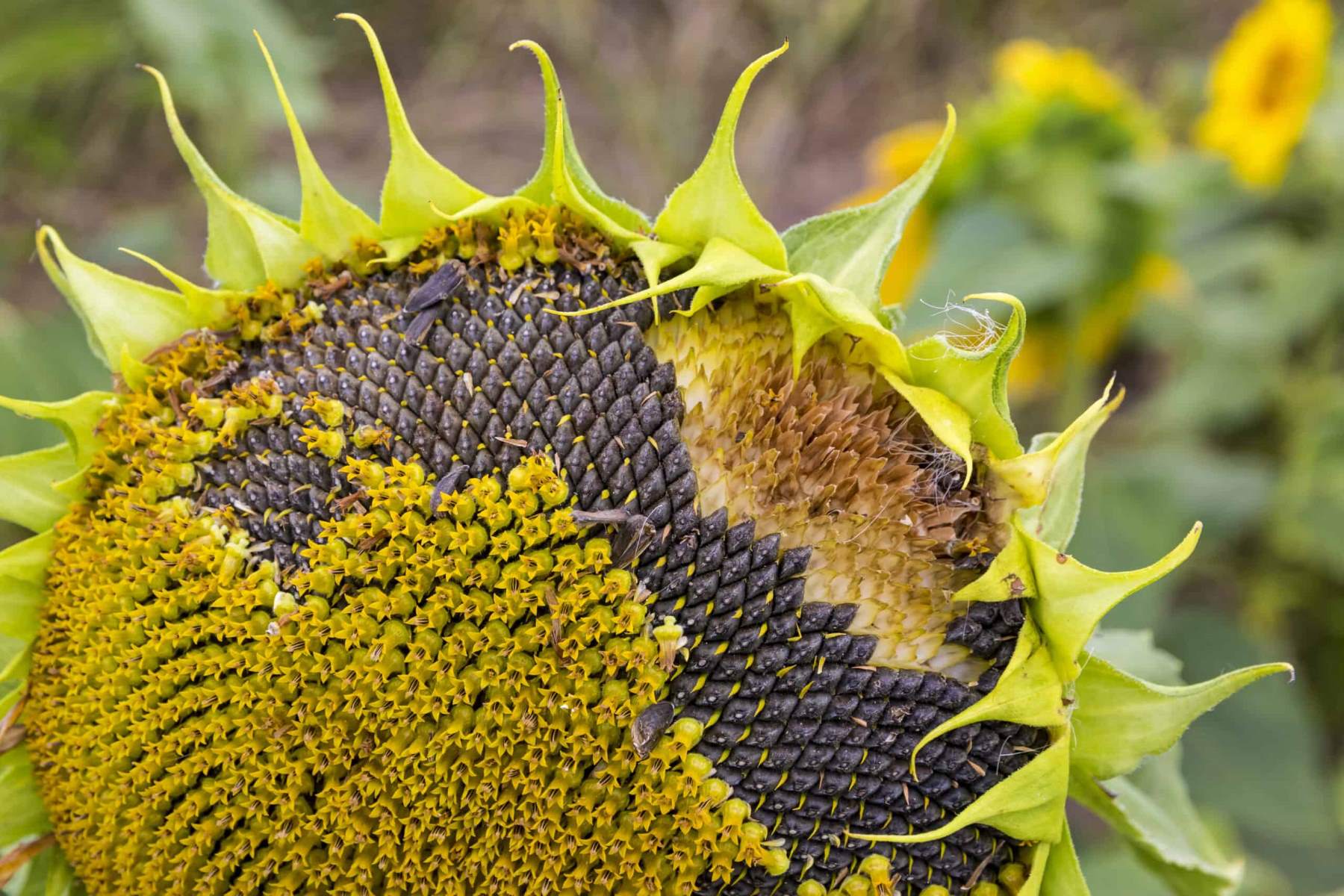
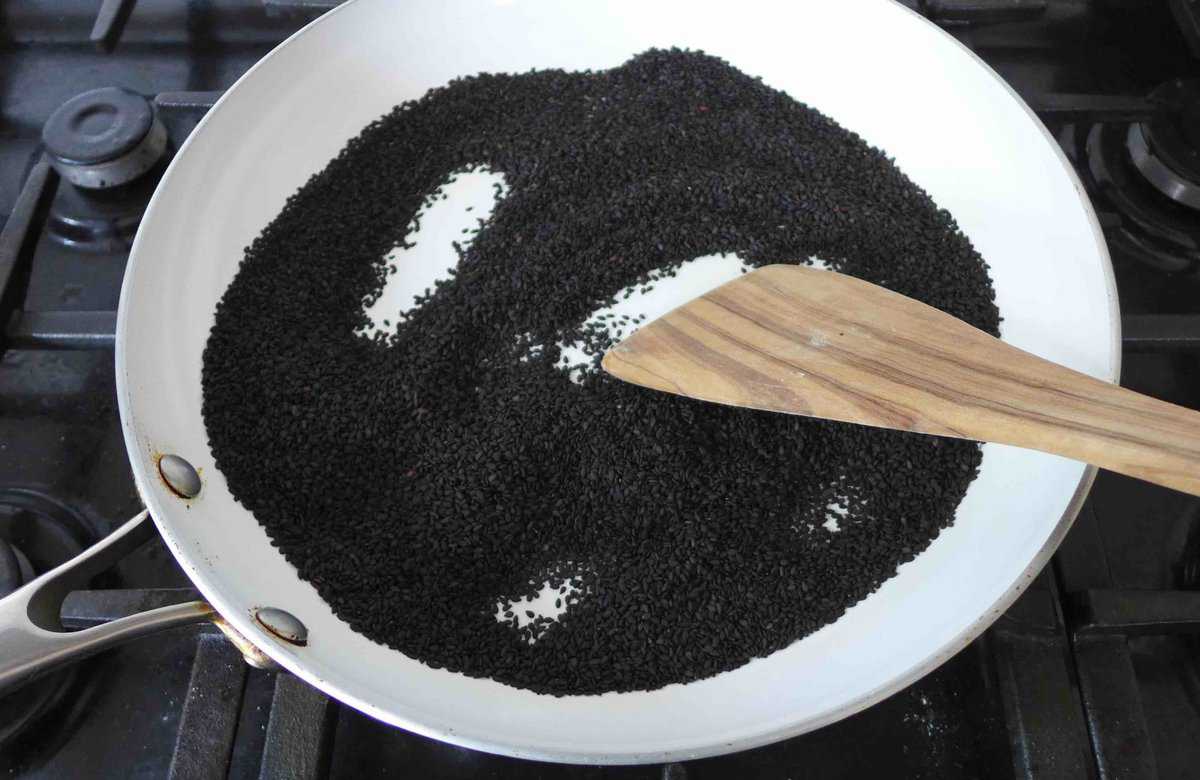
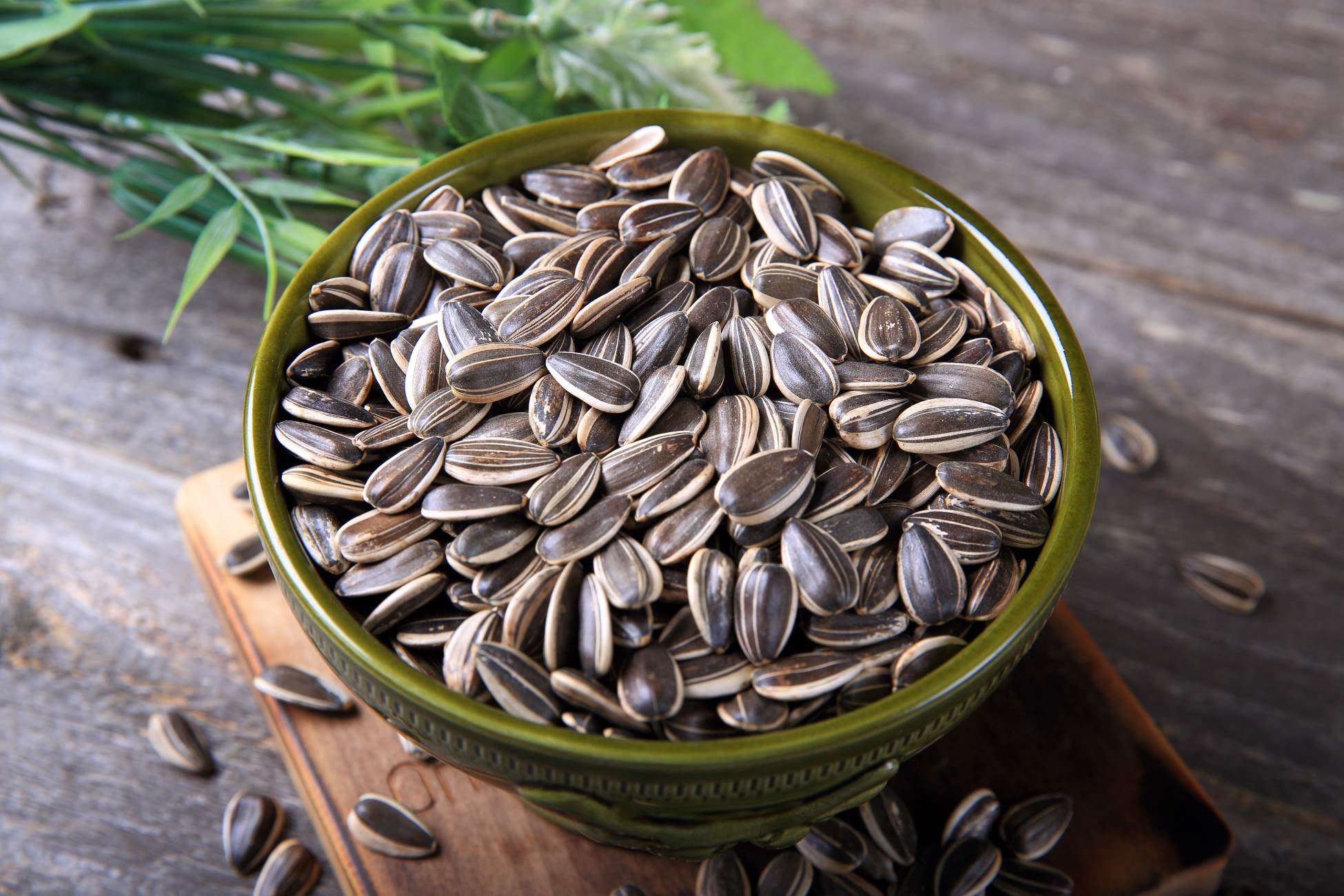
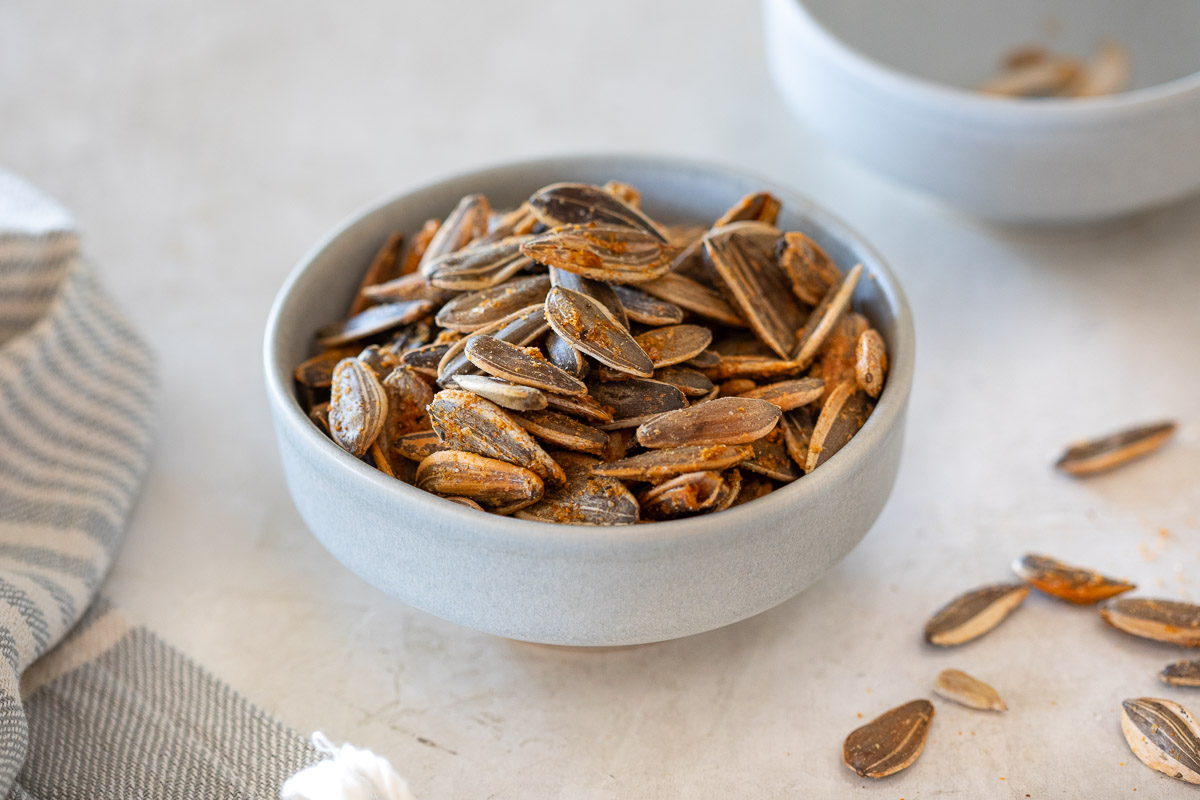
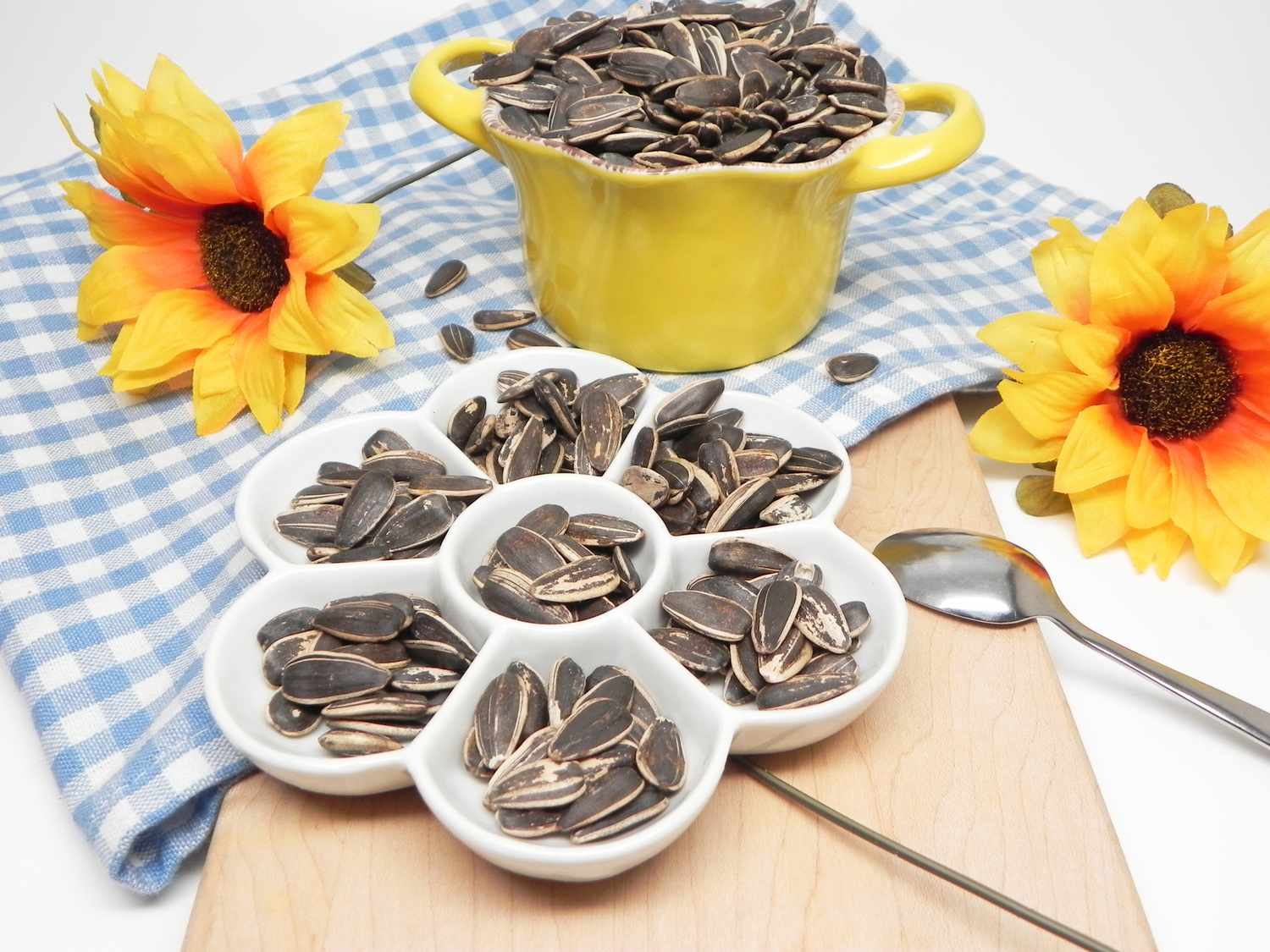
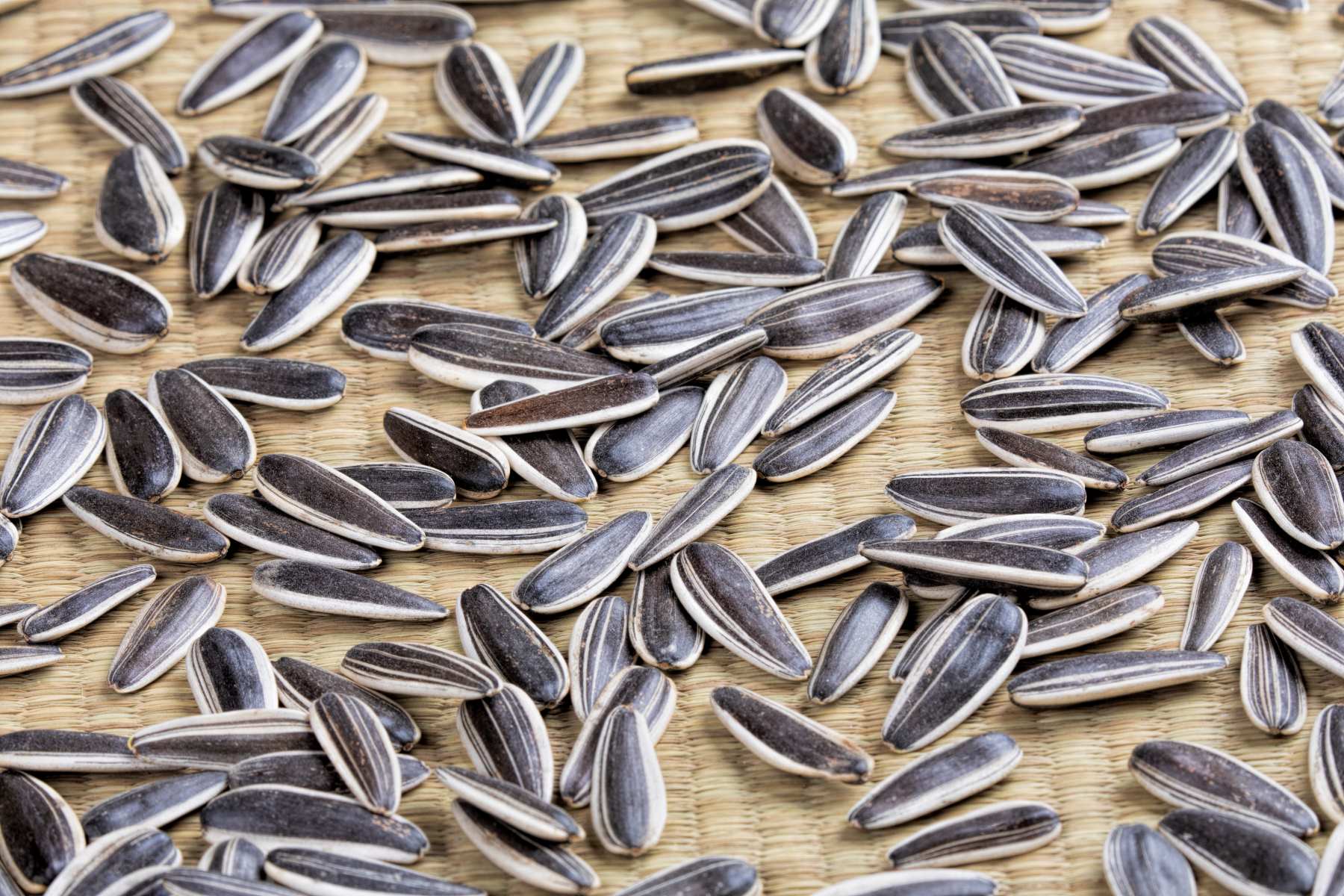
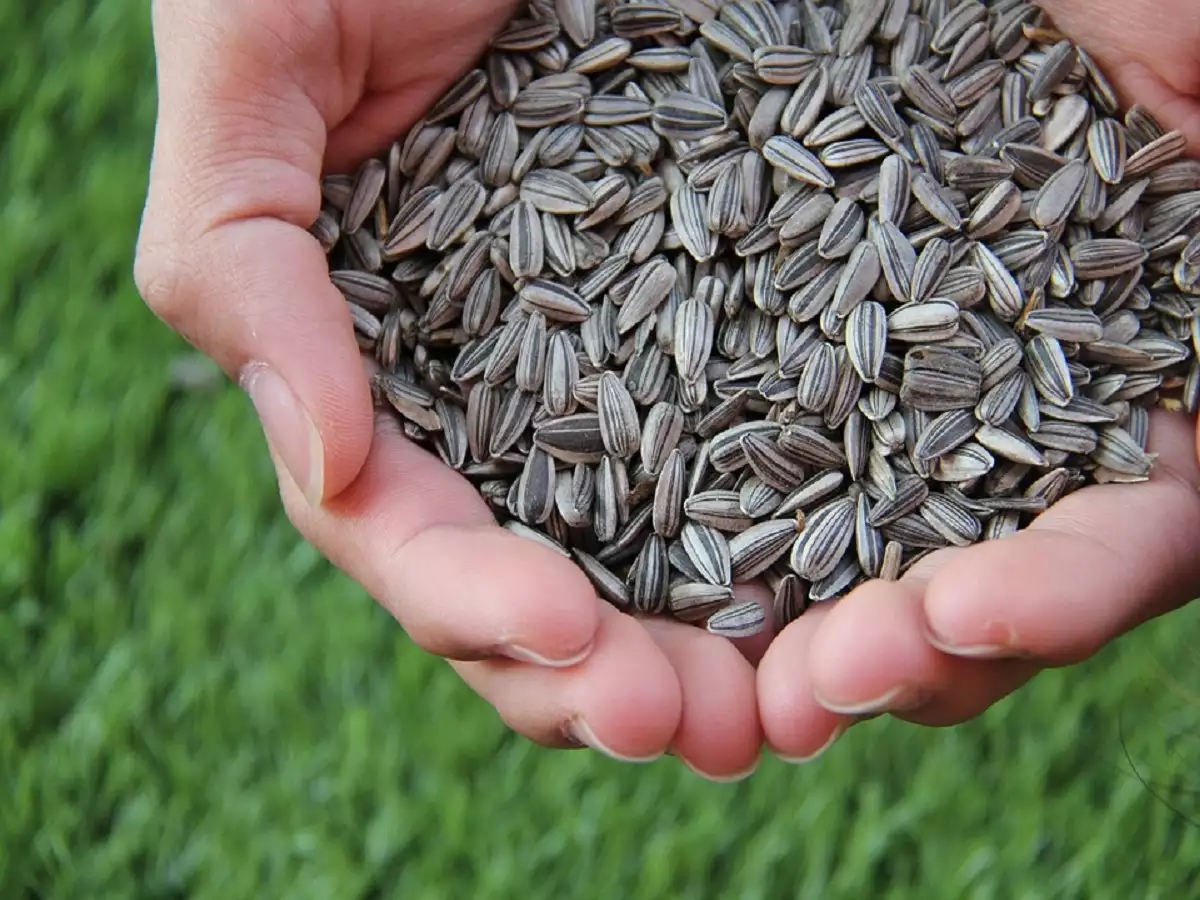
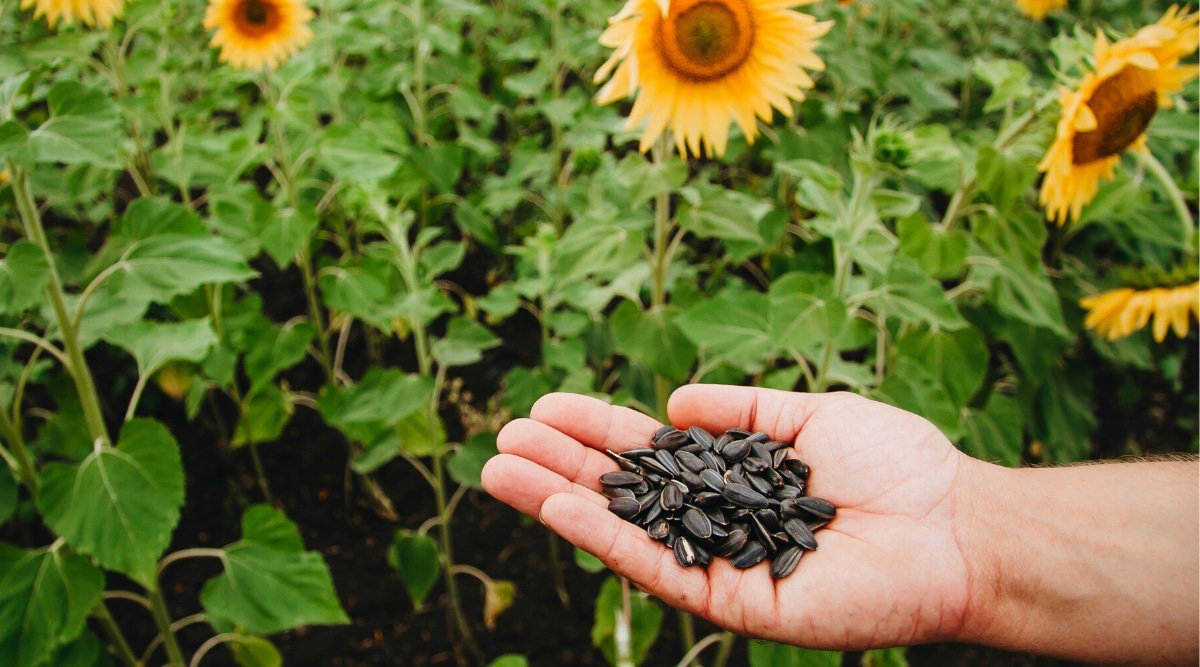


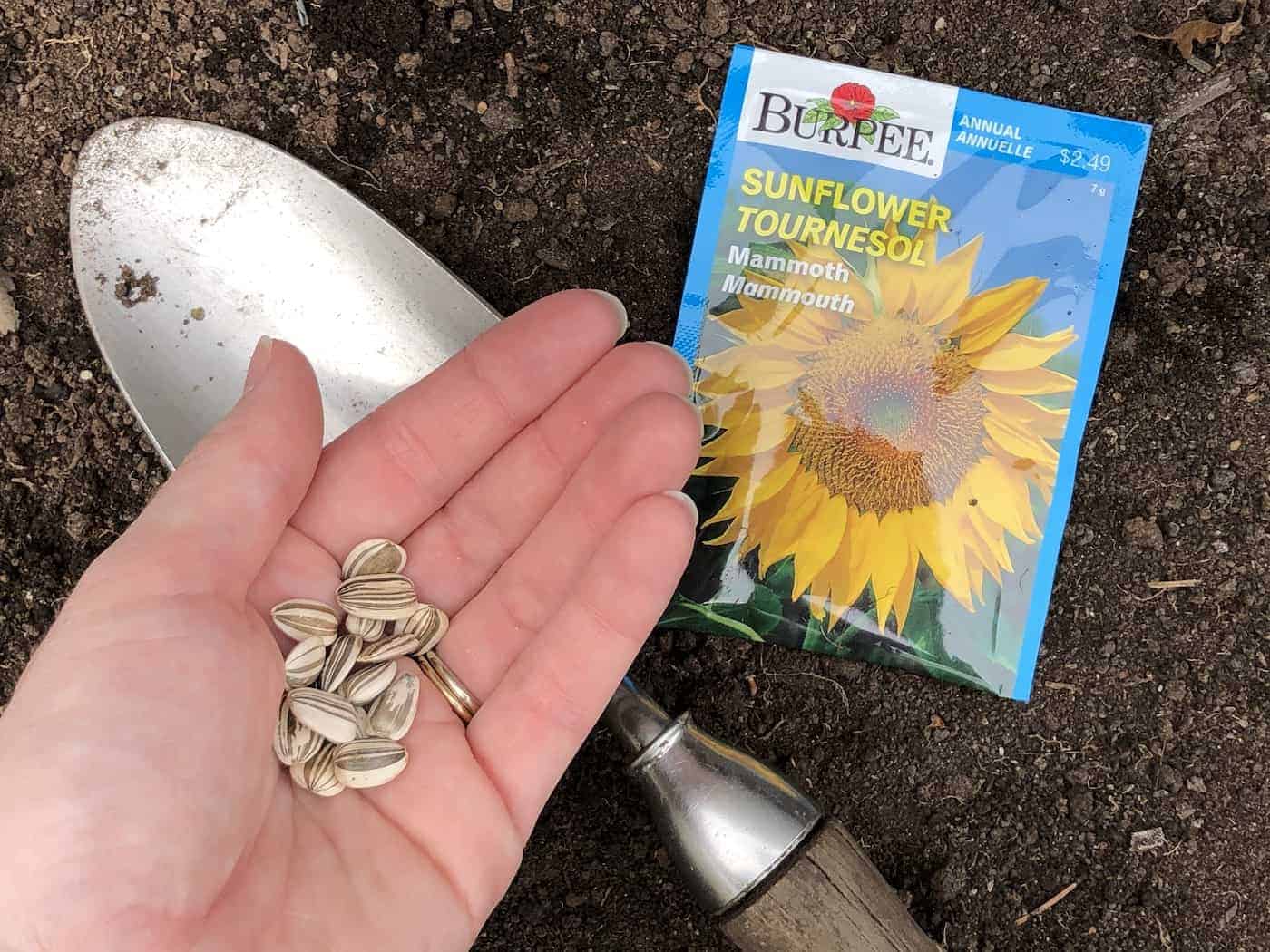
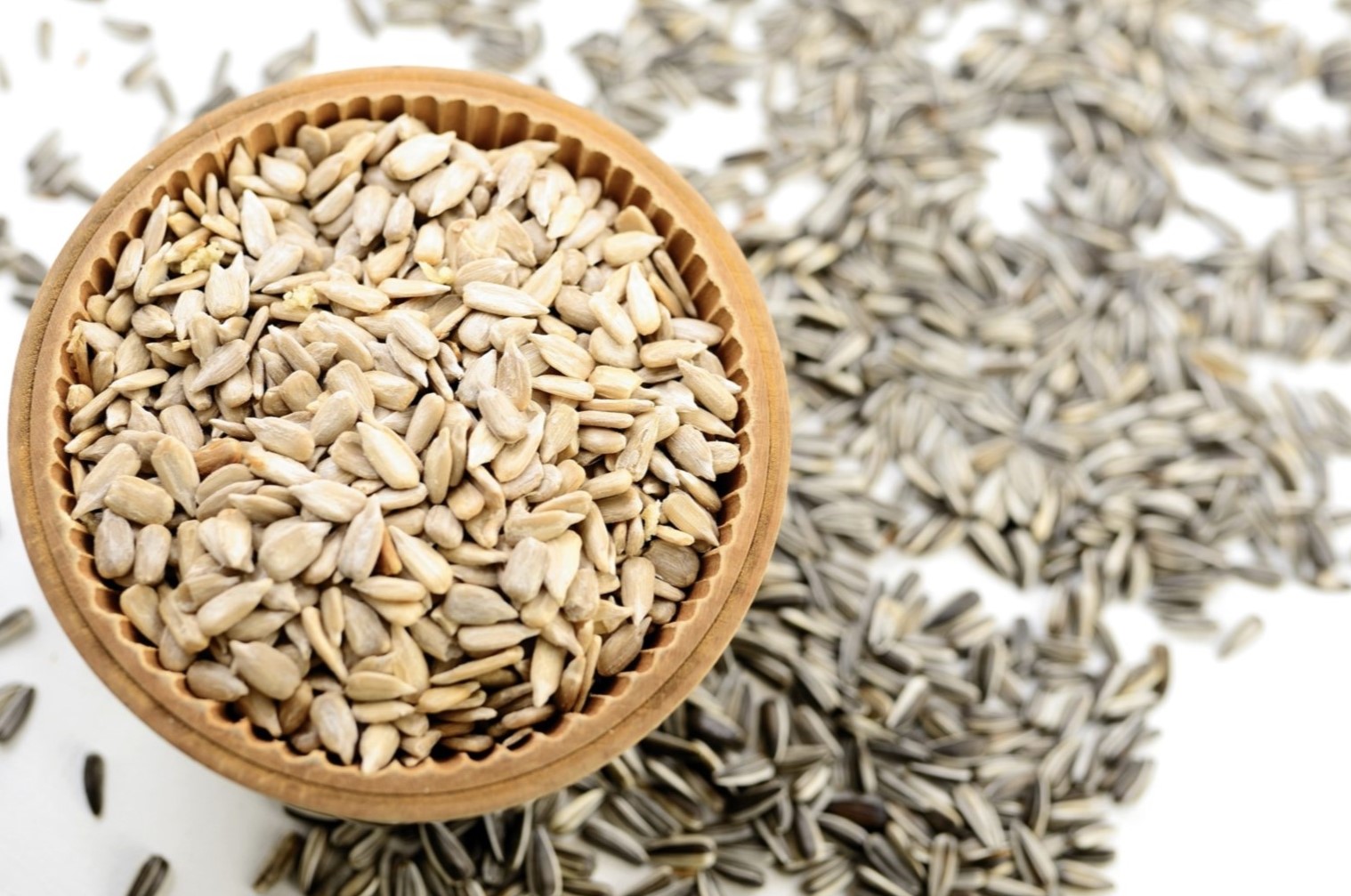
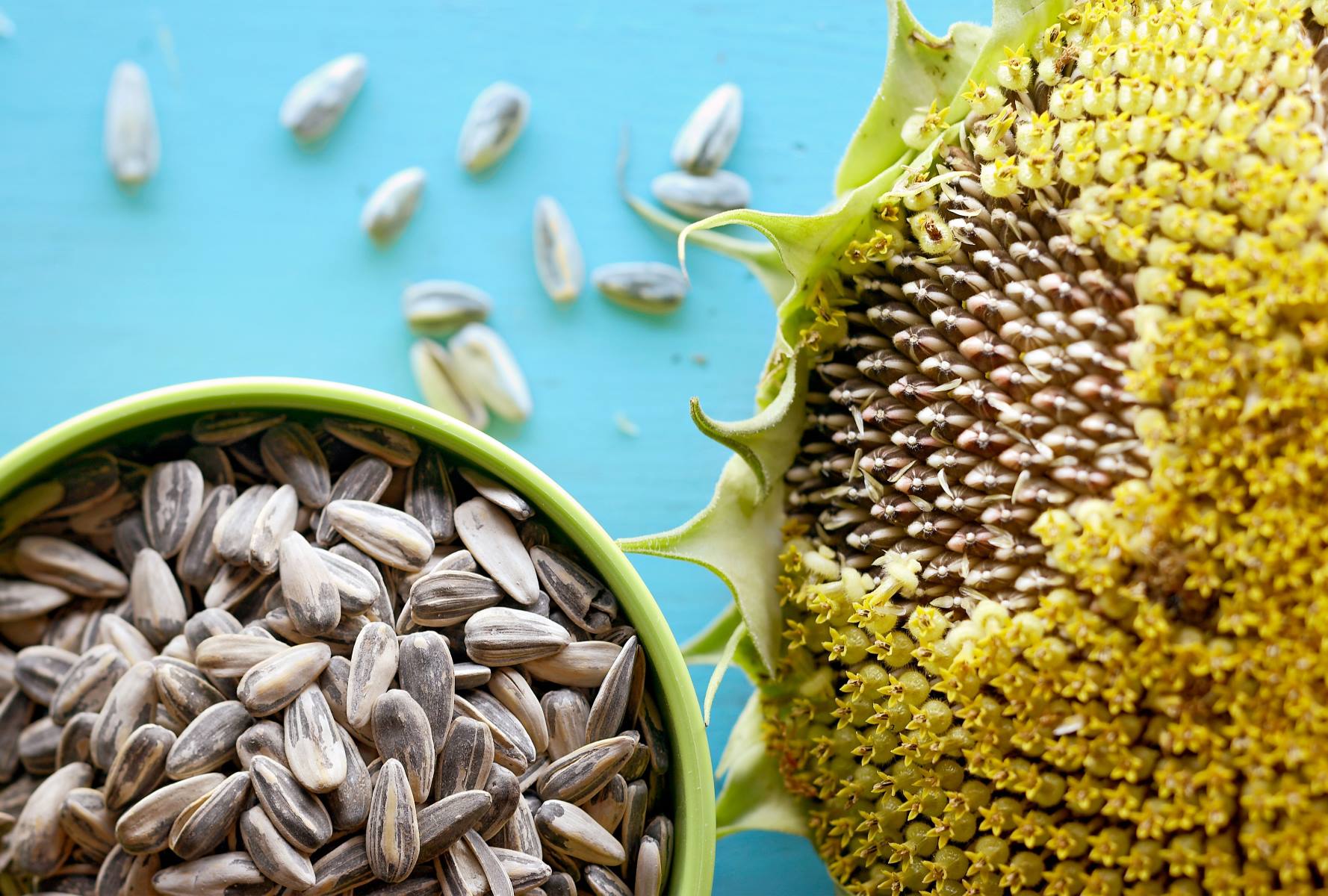
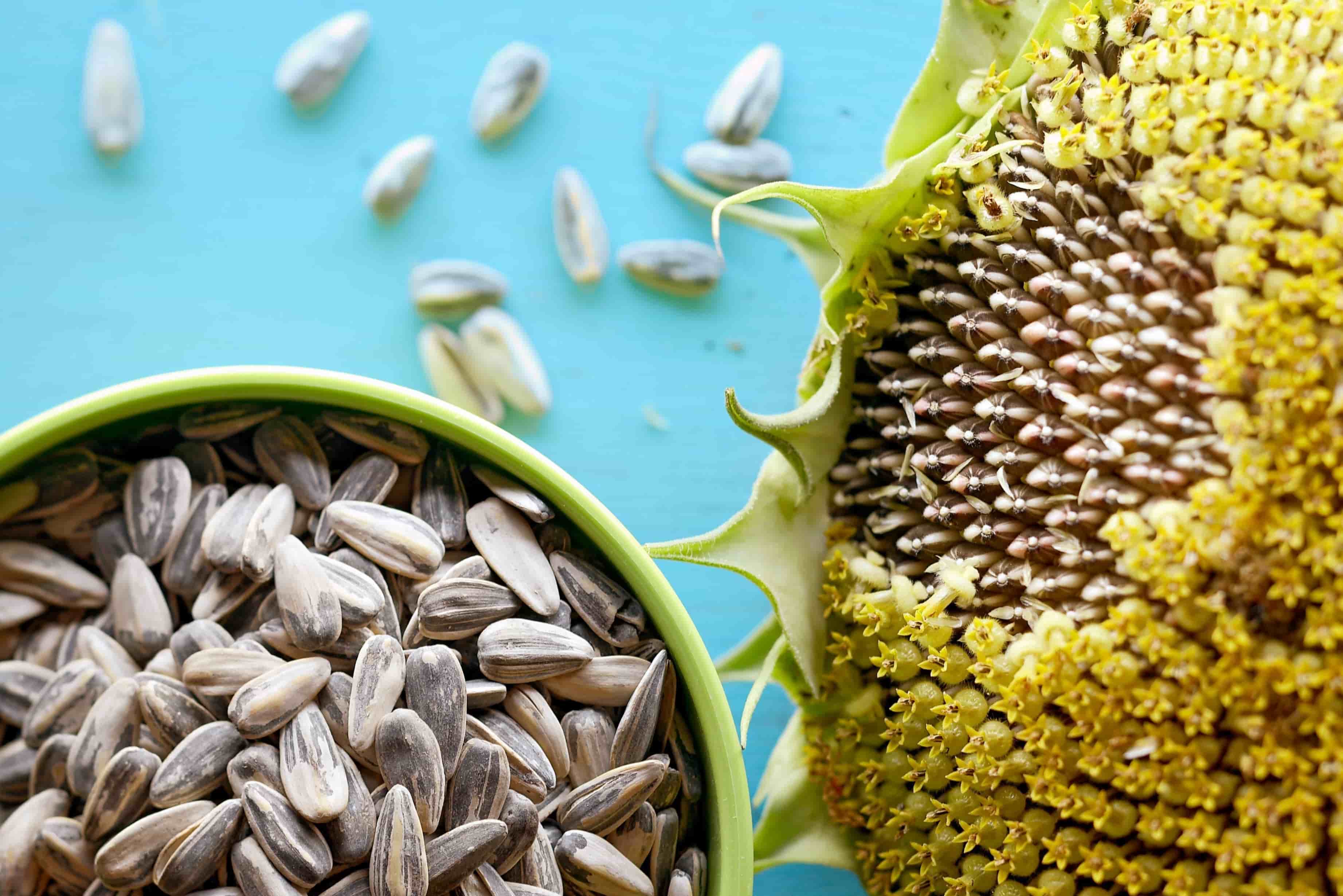

0 thoughts on “How To Salt And Roast Sunflower Seeds”